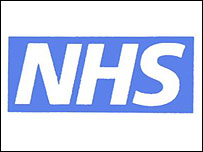Telemedicine touted as £46 million NHS cost saving option
Cardiac test machines which use telecommunications and outsource diagnosis could cut costs and prevent deaths, according to an NHS report.


Outsourcing cardiac tests using telecommunications could save 90,000 accident and emergency visits, potentially saving 46 million for the National Health Service (NHS) annually, according to a report by NHS Northwest.
A six-month pilot of cardiac telemedicine machines in 17 clinics across Cumbria and Lancashire showed how electrocardiogram (ECG) tests could use IT to cut treatment times and costs for patients with chest pains and heart problems.
A telemedicine ECG machine is similar to a standard one, but rather than print out the results they transmit them to an external clinical call centre, which is open 24 hours a day. There, the results are interpreted and sent back over email or fax, without having to wait for a GP or send the patient to a hospital.
As well, as the telemedicine ECG devices are pocket sized, they can be used anywhere.
"When you need an ECG to diagnose a problem with the heart rhythm or the cause of a pain in the chest, you need it there and then. You also need somebody to interpret it accurately. But in rural areas like parts of Cumbria and Lancashire, access to expert interpretation is not always immediately available," said Roger Boyle, the national director of heart disease for the Department of Health.
"Cardiac telemedicine is an excellent way to ensure that expert advice is available in a matter of minutes, not only to the patient but also to the healthcare professionals involved with the care," he added.
For the pilot, the NHS used BroomWell Healthwatch devices and call centres. The handheld devices scan a patient's chest and send the report over telephone in 45 seconds. The report is usually returned within ten minutes, although some clinicians in the pilot reported delays of about 30 to 40 minutes.
Sign up today and you will receive a free copy of our Future Focus 2025 report - the leading guidance on AI, cybersecurity and other IT challenges as per 700+ senior executives
Aside from just preventing delays, the technology can encourage early detection of heart problems.
"It's a quick and accurate way of making a diagnosis. It's more convenient for the patients, as they're dealing with people that they know and trust, rather than somebody anonymous at the hospital," said one Lancashire GP involved in the pilot. "They are often less stressed and anxious about coming to the surgery rather than going to the hospital. I believe it can make a huge difference to the quality of care we offer."
Freelance journalist Nicole Kobie first started writing for ITPro in 2007, with bylines in New Scientist, Wired, PC Pro and many more.
Nicole the author of a book about the history of technology, The Long History of the Future.
-
 Gender diversity improvements could be the key to tackling the UK's AI skills shortage
Gender diversity improvements could be the key to tackling the UK's AI skills shortageNews Encouraging more women to pursue tech careers could plug huge gaps in the AI workforce
-
 Researchers claim Salt Typhoon masterminds learned their trade at Cisco Network Academy
Researchers claim Salt Typhoon masterminds learned their trade at Cisco Network AcademyNews The Salt Typhoon hacker group has targeted telecoms operators and US National Guard networks in recent years
